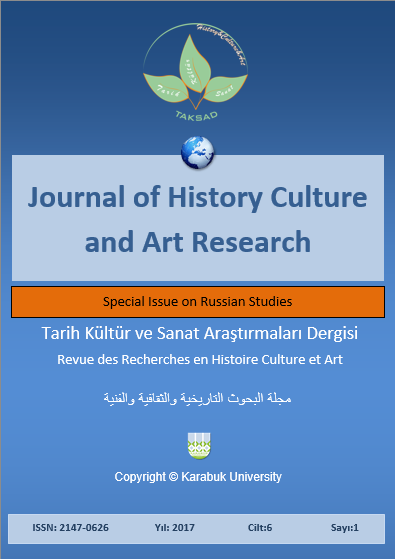Reformation of the Scientific and Technical Sphere in the Russian Federation in the "Transition Period": Plans and Reality in 1990s
DOI:
https://doi.org/10.7596/taksad.v6i5.1268Keywords:
Modernization, Rreforms, Scientific community, Scientific research.Abstract
The paper analyzes the situation that has been developed after the collapse of the former USSR in the scientific and technical complex of the Russian Federation, which, according to the authors, developed from a crisis situation to a catastrophic one. The conclusion is drawn that its degradation was caused not only by the general paralysis of the socioeconomic sphere, and also by the lack of a conceptually elaborated state industrial, scientific and technical and innovation policy, by the weakness of the legal framework and the erroneous priorities chosen at that time by the reformers. In general, the state scientific and technical policy in the period under review was characterized by inconsistency and persistently unrealized plans.
References
Archive of the State Duma of the Federal Assembly of the Russian Federation. Fund 10100. Series 2. File 703. Sheet 25.
Bodrova, E. V.; Gusarova, M. N. & Kalinov, V. V. (2013). State scientific and technical policy in the modernization strategy of Russia. Moscow: Publishing House of the Moscow Humanitarian University.
Gordon, A. & Klopov, E. V. (2001). Losses and acquisitions in Russia in the nineties: Historical and sociological essays on the economic situation of the people's majority. V. 1, 2. Moscow.
Jomo, K. S. (2004). Lessons from the 1997-98 East Asian Crisis. Annual World Bank Conference on Development Economics – Europe. Washington D.C.
Kodin, M. I. (2002). Theoretical and methodological problems of socio-economic and socio-political transformations in Russia in the late 20th century: 1990-2000. Moscow.
Kornai, J. (2000). Ten Years After "The Road to a Free Economy": The Author's Self-evaluation. Paper for the World Bank ‘Annual Bank Conference on Development Economics – ABCDE’ April 18-20, 2000. Washington D.C.
Krasilshchikov, V. (2008). The Rise and Decline of Catching Up Development: The Experience of Russia and Latin America with Implication for Asian ‘Tigers’ (2nd ed.). Málaga: University of Málaga.
Mau, V. A. (1995). Economics and Power: A Political History of Economic Reform in Russia: 1985-1994. Moscow.
Osipov, G. V. (1999). Reforming of Russia: results and prospects. Social trajectory of the reformed Russia. Novosibirsk.
Plimak, E. G. & Pantin, I. K. (2000). The drama of Russian reforms and revolutions. Moscow.
Shapiro, H. (2007). Industrial policy and growth. Desa Working Paper No. 53. Economic & Social Affairs. United Nations. Accessed on 01.09.2017, URL: http://www.un.org/esa/desa/papers/2007/wp53_2007.pdf
Sogrin, V. V. (2001). Political history of modern Russia. 1985-2001: from Gorbachev to Putin. Moscow.
Sukhorukova, S. M.; Pogorelyi, A. M. & Samorokov, A. V. (2016). Influence of the international technological division of labor on ecological and industrial safety. Russian Technological Journal, 4(13), 73-74.
The State Archives of the Russian Federation (GARF). Fund 10265. Series 1. File 53-55.
Zudin, A. (1995). Business and politics in post-communist Russia. Part 1, 2. Moscow.
Downloads
Published
How to Cite
Issue
Section
License
All papers licensed under Creative Commons 4.0 CC-BY.- Share — copy and redistribute the material in any medium or format
- Adapt — remix, transform, and build upon the material for any purpose, even commercially.
Under the following terms:
Attribution — You must give appropriate credit, provide a link to the license, and indicate if changes were made. You may do so in any reasonable manner, but not in any way that suggests the licensor endorses you or your use.
- No additional restrictions — You may not apply legal terms or technological measures that legally restrict others from doing anything the license permits.







